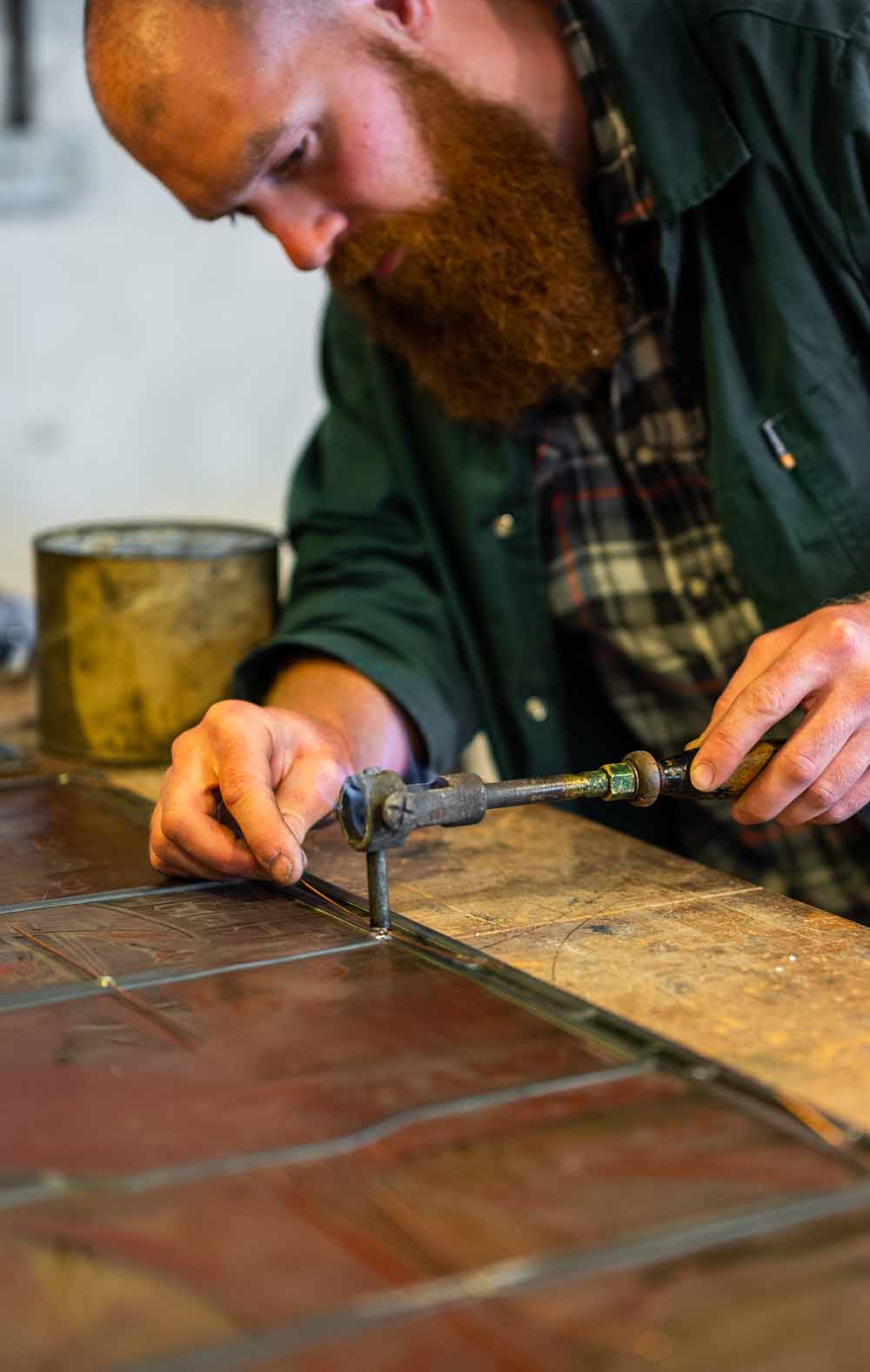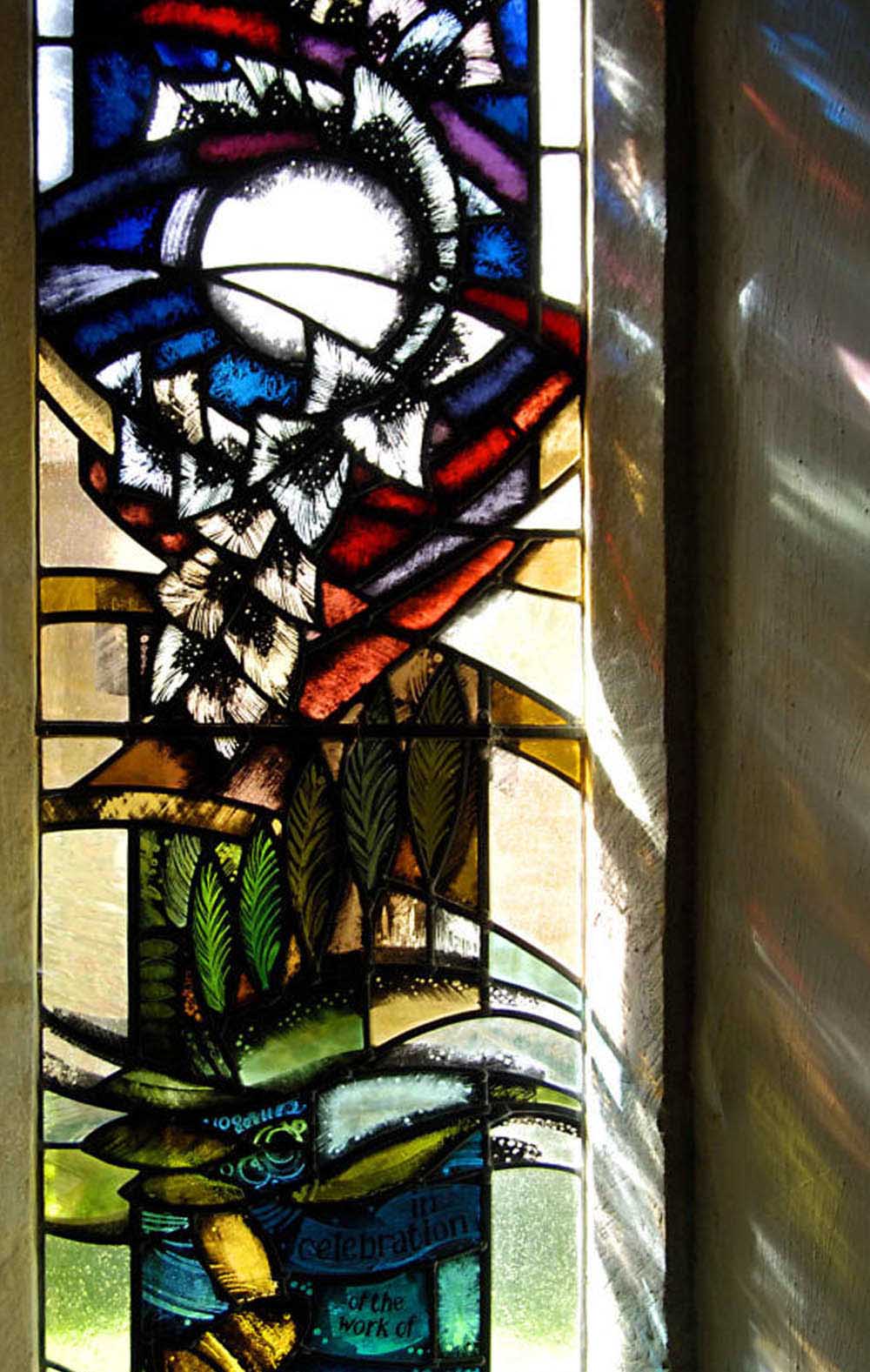Stained Glass joins Endangered Crafts
11 May 2023On the 11th May 2023, Heritage Crafts announced that stained glass window making (traditional and historic windows) is an endangered craft in the UK today.
The British Society of Master Glass Painters had provided Heritage Crafts with a range of data from various sources for the expert panel to consider (including surveys of the membership). The points for consideration on the viability of the craft were:
Loss of skills: The construction of large-scale traditionally painted, stained and leaded windows made with antique glass for buildings is in dangerous decline.
Ageing practitioners: Skilled artists and craftspeople, skilled ‘masters’ are aging and retiring, with few opportunities for apprentices to learn in studios. The British Society of Master Glass Painters has 61 accredited members (Fellows and Associates). A survey amongst them completed this month showed that 41% of respondents will be retiring in the next ten years and that 10% have already retired.
Lack of opportunities for skilled makers to pass on their skills: The survey also showed that 59% of masters (post formal education) had benefitted from working in a studio or completing a formal apprenticeship. Today only 18% of the respondents are in a position to pass on their knowledge and skills. However, a further 33% indicated that they would like to offer apprenticeships if funding was available.
Decline in educational opportunities and courses: In the last thirty years there has been a serious decline in the numbers of dedicated courses for traditional stained glass at Art schools and universities. There is vital outreach work to be done, as young people don’t know there is a career pathway into stained glass, and it isn’t on any education curriculums. The closure of all higher-level courses that solely focus on stained glass is a shocking fact. Even colleges and universities that offer glass courses, such as UCA in Farnham, and the University of Sunderland, don’t offer traditional stained glass courses. It has become something of a fringe option, often being absorbed into broader studio glass and ceramics curriculums. As such, core skills such as taking templates, laying out a drawing for a window, designing, cartooning, painting, staining, glazing and fitting windows are not being taught at higher levels.
Lack of training and employment opportunities with larger companies: Established studios such as Chapel Studio and Godard & Gibbs, which used to employ and train many craftworkers, have closed.
Lack of raw materials: This poses an existential threat to the craft of stained glass window making as there is now no mouthblown stained glass being made in the UK. A major manufacturer in Poland has also ceased trading. Some of the glass pigments and silver stain colours are no longer available, meaning that artists and conservation studios are relying on diminishing historic stock to match projects.
Rising costs of raw materials: The prohibitive rising cost of mouthblown glass has in part been due to extra costs of importing since Brexit and of course to the increasing energy costs of manufacturing. In 2023 the price of a sheet of some mouthblown glass is 50% more than three years ago. Materials such as glass pigments and stains are expensive, and the range is much reduced from a generation ago as manufactures such as Blyth and Oster have ceased trading.
Relevance in today’s world: Historic buildings such as churches are financially challenged and not commissioning many new works of art. The number of commissions is currently a fraction of those commissioned through the Victorian era and the post-war period. New buildings don’t always incorporate traditionally made windows because of current building regulations. Work needs to be done with specifiers to see how best to use new techniques and materials to ensure that the beauty of stained glass windows can be realised today.
Commenting on the announcement, BSMGP Chairman Steve Clare said, ‘Obviously there are mixed emotions on receiving the verdict from Heritage Crafts that this important strain of our craft is endangered. On one hand it confirms our view that despite our efforts to encourage the next generation of artists and craftspeople to join – we are now at dangerously low levels of professionals to protect the UK’s heritage of stained glass making. On the positive side, we hope that this announcement will allow the Society to shine a light on the problem and to galvanise others to help us create a renaissance in the use of stained glass and to therefore provide a future living for apprentices coming into the craft.’
See the Society’s Vision and Strategy page on how we intend to address the issues affecting our endangered craft.
A special initiative will soon be launched to raise funds for the BSMGP to tackle the issues outlined. If you would like to support us please visit the donate page and email Deborah Parkes to receive more information.



